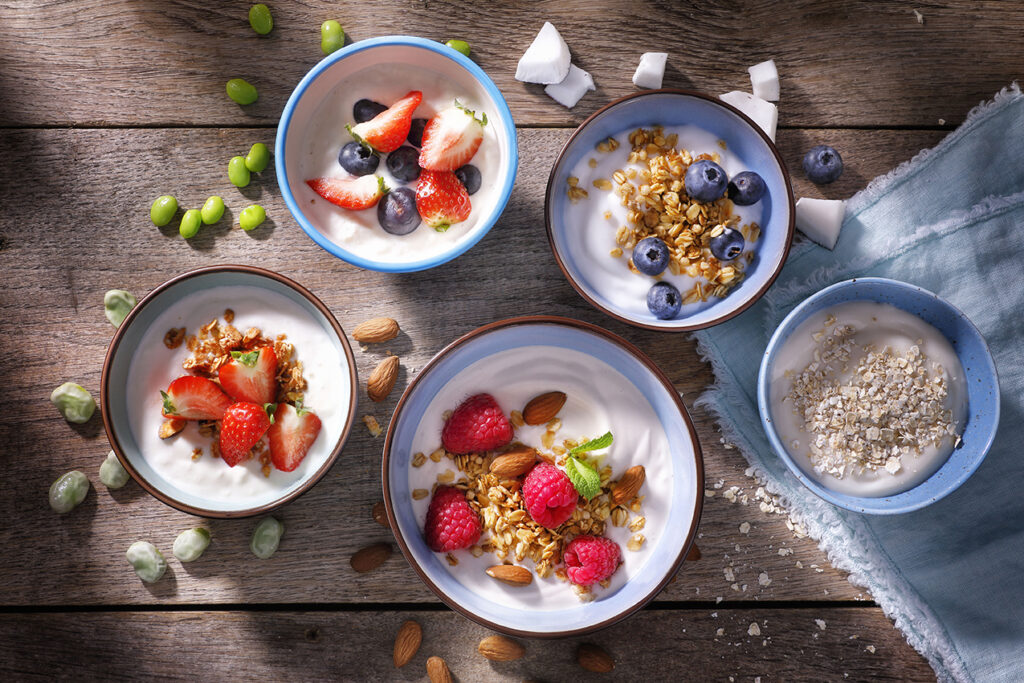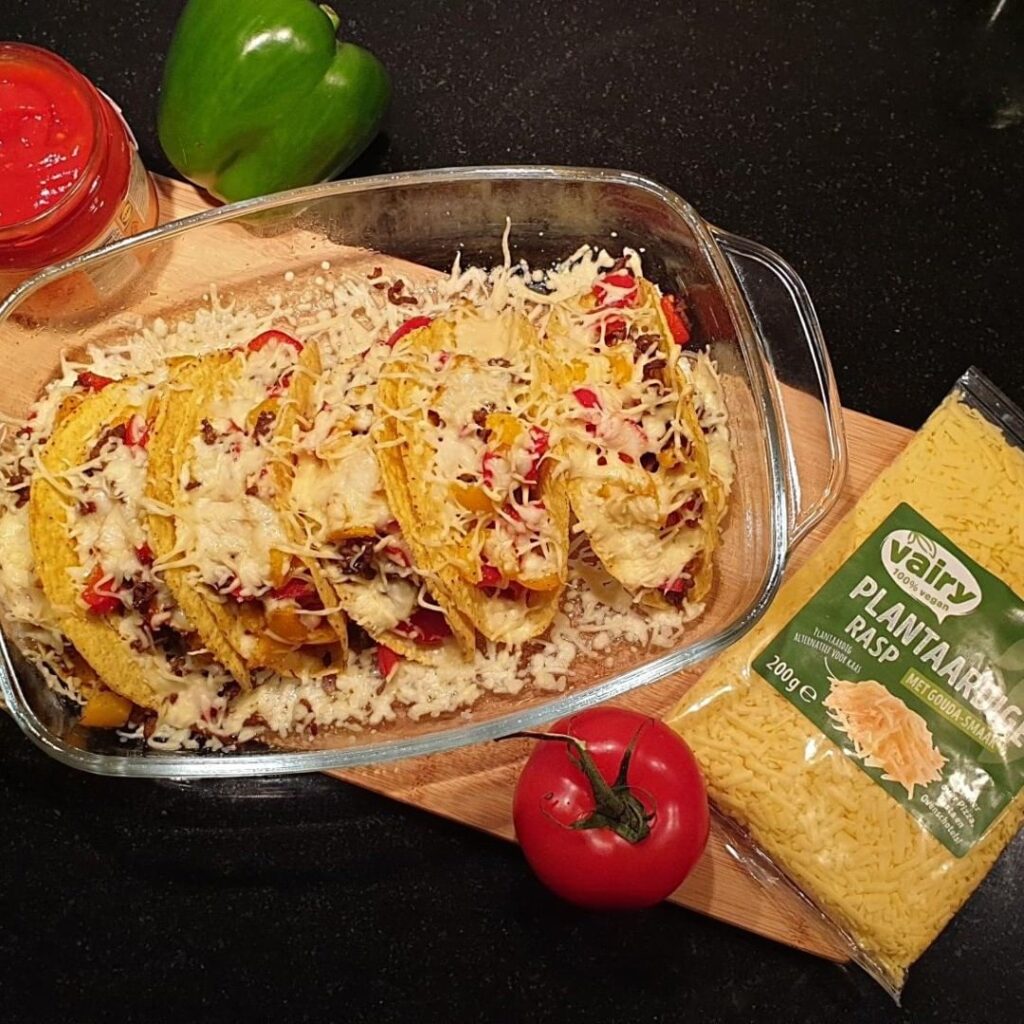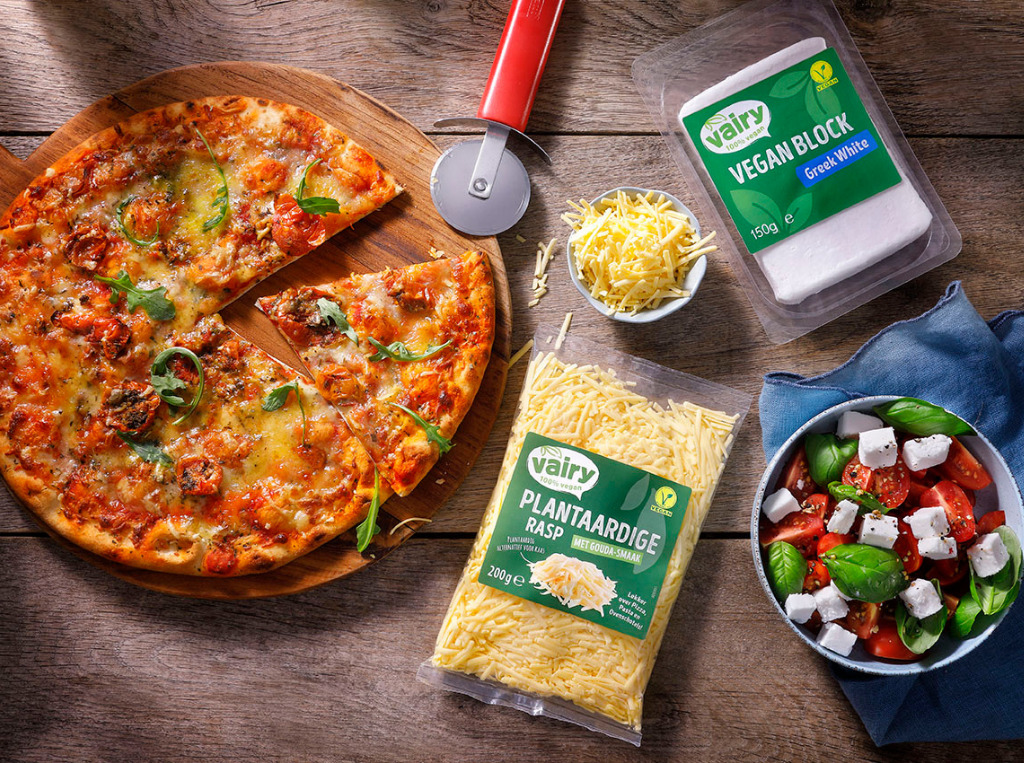Gouda Riddance: Dutch Company Spins Off Dairy to Go Fully Vegan, Aims for Europe-Wide Launch by 2026
5 Mins Read
Dutch dairy leader Boermarke, operational since 1987, has announced its intention to pivot to a fully plant-based product lineup. The decision comes after alt-dairy sales in the Netherlands grew in the last two years, as conventional milk witnessed a drop. Boermarke’s aim is to spin off its dairy division and launch its vegan lineup across Europe by 2026.
Boermarke introduced its plant-based brand Vairy in 2015 with a lineup of coconut yoghurts and has since expanded its range to multiple plant milk bases, alongside launching vegan cheeses and ice cream. The company is now preparing for a complete overhaul as it moves towards what it describes as a more sustainable production.
The 36-year-old company is already transferring its dairy operations to fellow dairy giant Zuivelhoeve – located a short distance away from its production site – and will gradually pivot to a 100% plant-based line under the Vairy brand, or via supermarket private-label offerings. It will also retain its 180 employees, who will now be involved in this shift in production, instead of moving to Zuivelhoeve.

Boermarke’s vegan cheese production has also witnessed an 800% growth in the last three years, and the company notes that a big reason for this rise is its price parity with dairy. (In one supermarket, 200g of grated gouda costs €1.78, while conventional gouda retails from €3.39 for the same amount.)
Boermarke isn’t the only Dutch dairy company working with plant-based alternatives. In 2021, Westland Cheese partnered with alt-dairy startup Those Vegan Cowboys to launch the vegan cheese line WildWestLand. Other recent developments in this sector include the launch of Amsterdam-based startup Willicroft’s fermented vegan butter earlier this month, and B2B ingredients company Vivici closing a seed funding round to bring to market its precision fermentation dairy proteins last month.
The Dutch alt-dairy shift: a work in progress
Boermarke’s transition plays into consumer trends in the Netherlands. According to industry think tank the Good Food Institute (GFI) Europe, between 2019-22, alt-milk sales in the nation grew by 14%. Meanwhile, conventional dairy companies like Boermarke have suffered, with unit sales of cow’s milk down by 13%. Even in terms of costs, while inflation has seen price hikes across the board, conventional milk prices have gone up by 14%, compared to a 3% rise for plant-based alternatives in the Netherlands.
Historically, the Netherlands has been a major dairy consumer, owing to the prevalence of milk products in its culinary culture. It’s also the joint third-largest producer of milk in Europe. However, this has gradually decreased over the years. According to one estimate, per capita consumption of dairy products in the Netherlands amounted to 129kg per year in 2005 – but this reduced by about 15% to 110kg annually in 2022.
The Netherlands has one of the highest per capita consumption of plant-based foods across Europe, with overall sales growing by 9% between 2020-22. However, meat consumption hasn’t reduced too much, either – going down from 50% to 44% between 2019-22. And while the Dutch are drinking less milk, they’re eating more cheese. Between 2005 and 2021, consumption of cheese and quark increased by 40%.
This aligns with a broader plant-based trend in the country – despite only 3% of the population identifying as vegan, cheese is the fastest-growing plant-based category, seeing a 60% hike in sales between 2020-22, according to GFI Europe.
Analytics firm Foss reports that the Dutch government aims to become a plant-based world leader by 2030. “A lot has happened during the last five years, and the average supermarket in the Netherlands now has as many plant-based products as conventional products,” says its Benelux segment sales manager René Stoffels.
“The most popular products are ready-to-eat products made locally in the Netherlands simulating dairy, fish, chicken, and minced meat. And we see a lot of innovation in the industry where milk made from grass is only one of the things currently being tested.”
Dutch plant-based dairy faces challenges

Boermarke’s decision to eliminate animal products from its product portfolio is motivated by consumer demands for a separation between dairy and vegan production. It says the process to fully transition will take three years and aims to make its alt-dairy products available at supermarkets across Europe by then.
However, the (soon-to-be-vegan) dairy company will have to contend with cost challenges as the Netherlands raises the tax levied on plant-based milk from next year. These products are classified as soft drinks in the company’s legislation, as the government argues that alt-milks don’t have enough protein, their impact has “not been sufficiently researched to comment on”, and the additives in these products make them unhealthy.
The change in law will see the VAT on plant-based milk triple from nearly nine cents to 26 cents per litre. Soy and pea milk won’t carry the surcharge, however, as they are deemed to contain an equivalent amount of protein to conventional milk.
Additionally, since the Netherlands is part of the EU, rules about plant-based milk labelling also apply here. Currently, the EU prohibits vegan manufacturers from calling their dairy alternatives ‘milk’, ‘cheese’, ‘ice cream’, etc. on product packaging.
So while there are signs that the plant-based dairy industry is growing in the Netherlands, some factors still limit their potential, keeping it a work in progress. As Foss plant-based foods specialist Mette Skau Mikkelsen attests: “While the industry has grown tremendously in recent years, there is still a lot of missing knowledge related to nutrition and texture of plant-based food.”



